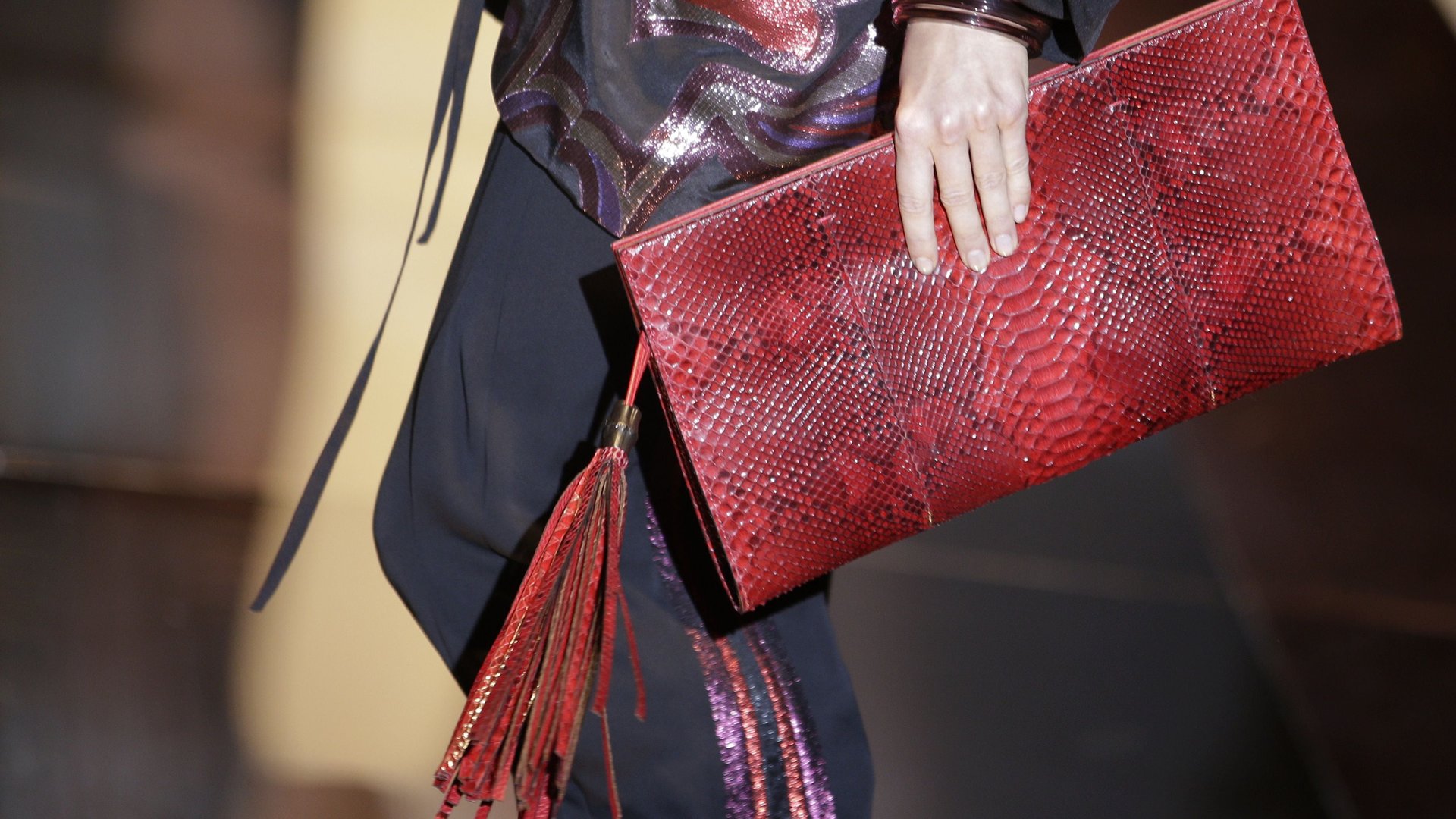Alibaba is being sued over counterfeit sales of Gucci and Saint Laurent
Luxury group Kering, parent company to numerous global fashion brands including Gucci, Saint Laurent, and Bottega Veneta, is suing Alibaba. It’s accusing the world’s possibly largest online commerce company of encouraging rampant counterfeiting of its products through its “ecosystem.”


Luxury group Kering, parent company to numerous global fashion brands including Gucci, Saint Laurent, and Bottega Veneta, is suing Alibaba. It’s accusing the world’s possibly largest online commerce company of encouraging rampant counterfeiting of its products through its “ecosystem.”
The suit, which Kering filed on May 15 in US district court in New York, pits two companies with very deep pockets in a contest that seems likely to have costly consequences for the loser. It’s also a direct shot at China’s gigantic counterfeiting market, which is estimated to produce nearly 70% of the world’s knock offs.
What Kering says is at stake is essentially the value of its brands. Exclusivity and brand cachet are critical parts of the perceived worth of a luxury product. Even if the person buying a knockoff Gucci bag isn’t generally the same customer buying an authentic one, a marketplace flooded with fakes and the resulting overexposure of the Gucci logo could taint perception of Gucci overall, causing customers who might have bought the real product to look elsewhere.
“Kering and its brands dedicate a great amount of creative energy, craftsmen’s know-how and monetary investments to develop products that speak to consumers and fulfill their needs,” a Kering spokesperson said in a statement to Quartz. “It takes equally seriously its obligation to protect its customers from being defrauded by counterfeiters selling goods of inferior quality. This lawsuit is part of Kering’s ongoing global effort to maintain its customers’ trust in its genuine products and to continue to develop the creative works and talents in its brands.”
According to the suit, Alibaba.com and the sites AliExpress.com and Taobao.com, which Alibaba owns, create an environment that promotes counterfeiting. It states that Alibaba and its sites “facilitate and encourage the sale of an enormous number of Counterfeit Products through their self-described ‘ecosystem,’ which provides manufacturers, sellers, and buyers of counterfeit goods with a marketplace for such goods, and provides online marketing, credit card processing, financing, and shipping services that effectuate the sale of the Counterfeit Products.”
The suit gives several concrete examples of the ways it says Alibaba encourages counterfeiting, as well as calling out numerous sellers by name. It points, for example, to the seller Shenzhen Babylon, which offers fake Gucci watches, and which Alibaba ranks as a “Gold Supplier,” essentially a mark of approval, despite its trafficking in counterfeit goods.
It also says Alibaba “sold the keyword ‘replica’ to Shenzhen Babylon, and added the term ‘wristwatches’ to searches for ‘replica’ to direct Internet browsers to merchants selling replica wristwatches, including counterfeit wristwatches bearing the Gucci Marks.”
In other words, Alibaba itself directed customers toward fakes.
Those are among the reasons why Kering isn’t going after individual sellers on Alibaba and its sites, but is filing the suit against Alibaba itself.
The suit is actually the second time Kering has taken Alibaba to court over counterfeits of its products. In July 2014, Kering filed its first suit against the Chinese e-commerce giant, but it withdrew the complaint the next month after the two companies agreed to work together on the problem.
The new suit suggests Kering wasn’t satisfied with Alibaba’s response.
In a statement to Quartz, an Alibaba Group spokesperson said, “We continue to work in partnership with numerous brands to help them protect their intellectual property, and we have a strong track record of doing so. Unfortunately, Kering Group has chosen the path of wasteful litigation instead of the path of constructive cooperation. We believe this complaint has no basis and we will fight it vigorously.”
So how prevalent is the counterfeiting? Kering says a search of Alibaba.com and Taobao.com on June 26, 2014, returned about 120,000 listings for Gucci products alone. “A significant portion of these search results are sellers who are not selling authentic Plaintiffs’ Products, but rather are either selling Counterfeit Products or making other infringing uses of Plaintiffs’ Marks,” the suit says.
Kering is asking for a court order that would prohibit Alibaba from selling fakes and seeks unspecified damages. Reuters reports that a “statutory regime” could include damages of $2 per counterfeit item.
If Kering wins, that amount won’t make much of a dent in Alibaba, which is currently worth more than $200 billion. But it could fundamentally change its marketplace, and it sends a clear message to China’s counterfeiters: Stay away from Kering products.